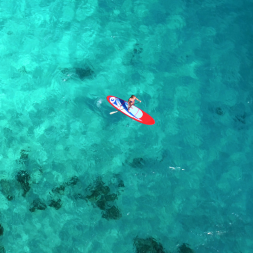How to Work as a Nurse Practitioner in the U.S. Virgin Islands
Over the past year or so, I’ve had a few nurse practitioners ask about how NPs can work in the U.S. Virgin Islands. I had never considered taking my career outside of the states to a U.S. territory. Not a bad idea… Whether it’s the lure of 133 square miles of pure tropical oasis right outside your doorstep or the opportunity to provide healthcare to a medically underserved population, practicing as a nurse practitioner in the U.S. Virgin Islands can be very appealing. And along with teaching, healthcare jobs are in constant demand as one of the USVI’s major occupations.
What is the process for practicing as a NP in the USVI?
Like any of the 50 states, the US Virgin Islands has its own Board of Nurse Licensure. As such, nurse practitioners are required to meet certain qualifications in order to practice within the territory. Before proceeding with the licensure applications, it’s important to review and understand the required qualifications, which can be found on the Virgin Islands Board of Nurse Licensure’s (VIBNL) website under APRN Act No. 6736.
Because the VIBNL recognizes the NCLEX exam as well as most US-based undergraduate and graduate nursing programs, applying for your RN license for the US territory is similar to applying for a license in any other US state. And provided that you did not complete your program in a foreign country outside the US, you will not be required to take the Commission on Graduated of Foreign Nursing Schools (CGFNS) exam.
Similarly to the US and Canada’s processes, the first step towards practicing as a NP in the USVI is to first apply for a license as a Registered Nurse before applying for your APRN license. In addition to a completed Verification of License form, the VIBNL will require proof of a Social Security Card, two recent passport photos, proof of graduation and a copy of your active and unencumbered US nursing license, as well as two letters of recommendation. The process costs $125 and the processing time can take up to 90 business days from the time of submission.
After you are in possession of your RN license, the next step is to apply for the APRN license and submit all of the required documentation, which are quite a bit more than that of the required documents for your RN license. It is important to note that as part of APRN Act No. 6736, NPs must have a collaborative agreement with a collaborating physician. The collaboration agreement must be in place and provided as part of your application for an APRN license. In most cases, this means you must have a job lined up before applying for your USVI nurse practitioner license.
At the time of application, you may also request prescriptive authority to be designated on your APRN license by providing documentation of current prescriptive authority from your current state of residence or documentation of a current DEA number. The application process costs $150 and applicants should also allow for 90 business days for review and issuance.
What Salary Can Nurse Practitioners Expect in the USVI?
Nurse practitioners should not expect to rake in the big bucks while practicing in paradise! The USVI has an average cost of living that is 33% higher and an average salary that is on par with other US jurisdictions. While yes, the nurse practitioner profession is an in-demand field, NPs can expect to make roughly around the $91,000 to $98,000 salary mark. This compensation package, however, won’t go as far as in the continental United States given the cost of living in the islands.
But if the cost of living and pay aren’t an issue compared to the advantages of living on island time, practicing as a NP on the Virgin Islands is a fairly simple and familiar process. For American citizens, becoming a Virgin Islander is nearly as easy as moving across state lines on the mainland. Americans can work and travel just as freely as they would stateside. Social Security cards are really the only required document needed, if you plan to work; however passports are recommended and other identification cards like drivers licenses and birth certificates should be carried.

